Jennifer Ouellette in Ars Technica:
 Hip-hop artist Childish Gambino (aka actor Donald Glover) made a splash in 2018 with the release of his Grammy-winning hit single, “This Is America.” With its stark, sudden shifts between choral melodies in major chords and menacing percussive elements drawn from the trap subgenre, the song constantly defies the listener’s expectations throughout.
Hip-hop artist Childish Gambino (aka actor Donald Glover) made a splash in 2018 with the release of his Grammy-winning hit single, “This Is America.” With its stark, sudden shifts between choral melodies in major chords and menacing percussive elements drawn from the trap subgenre, the song constantly defies the listener’s expectations throughout.
That’s why “This is America” also tops the list of pop songs rich in so-called “harmonic surprise,” or points when the music deviates from listener expectations. This is according to a recent study published in the journal Frontiers in Human Neuroscience that analyzes Billboard hits from 1958 to 2019. And it’s no coincidence that the tune is among the most recent: the study also found that harmonic surprise in popular music has been increasing over the decades—a phenomenon the authors have dubbed “inflationary surprise.”
More here.

 Not long after I moved into my first apartment, I started keeping an archive.
Not long after I moved into my first apartment, I started keeping an archive. Jonathan Franzen, the novelist who has been lauded and reviled as few figures in contemporary American letters ever are,
Jonathan Franzen, the novelist who has been lauded and reviled as few figures in contemporary American letters ever are, 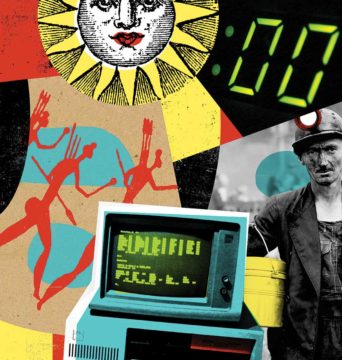 Aaron Benanav in The Nation (Illustration by Tim Robinson):
Aaron Benanav in The Nation (Illustration by Tim Robinson):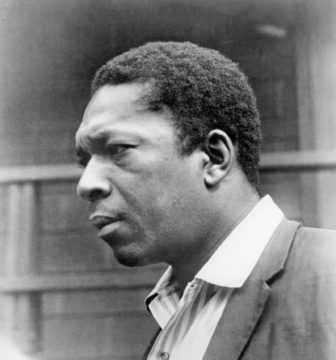
 Justin Sandefur over at the Center for Global Development:
Justin Sandefur over at the Center for Global Development: Yakov Feygin in Noema (image by Roman Bratschi for Noema Magazine):
Yakov Feygin in Noema (image by Roman Bratschi for Noema Magazine):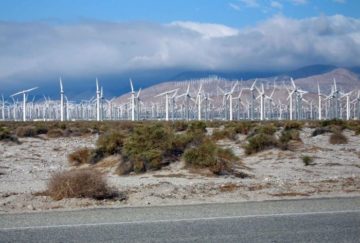 David McDermott Hughes in Boston Review:
David McDermott Hughes in Boston Review: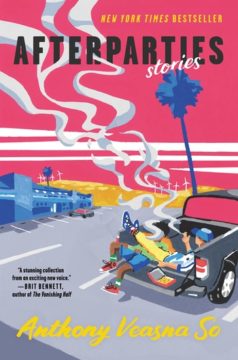 Afterparties is haunted by lateness, not only because it arrives after the premature death of its author, but also because it is a work of Cambodian American literature. “I very much feel that I come from a Cambodian-American world, not really an American one . . . so I find it important for my work to reflect that,” So said in a 2020 interview. In contrast to Asian American writing by those of Japanese, Chinese, and Korean descent (what So might refer to as “mainstream East Asians” in “The Shop”), Cambodian American writing is a relatively newer and more minor literature. (“We’re minorities within minorities,” goes So’s own self-description in his posthumous essay “Baby Yeah.”) There was a relative absence of Cambodian American communities until the late 1970s, following the genocide and the passage of the 1980 Refugee Act; there is now also a deficit of Cambodian writing and writers, because the Khmer Rouge annihilated Cambodian society by targeting its intellectuals and artists (libraries and schools were demolished, books burned, teachers murdered). The aftershocks of genocidal loss permeate the writing of the Cambodian diaspora, as the deliberate obliteration of their literature makes the work of contemporary writing both more necessary and difficult. For the children of Cambodian refugees, this work is even harder: How do you write the stories of those whose stories were systematically destroyed?
Afterparties is haunted by lateness, not only because it arrives after the premature death of its author, but also because it is a work of Cambodian American literature. “I very much feel that I come from a Cambodian-American world, not really an American one . . . so I find it important for my work to reflect that,” So said in a 2020 interview. In contrast to Asian American writing by those of Japanese, Chinese, and Korean descent (what So might refer to as “mainstream East Asians” in “The Shop”), Cambodian American writing is a relatively newer and more minor literature. (“We’re minorities within minorities,” goes So’s own self-description in his posthumous essay “Baby Yeah.”) There was a relative absence of Cambodian American communities until the late 1970s, following the genocide and the passage of the 1980 Refugee Act; there is now also a deficit of Cambodian writing and writers, because the Khmer Rouge annihilated Cambodian society by targeting its intellectuals and artists (libraries and schools were demolished, books burned, teachers murdered). The aftershocks of genocidal loss permeate the writing of the Cambodian diaspora, as the deliberate obliteration of their literature makes the work of contemporary writing both more necessary and difficult. For the children of Cambodian refugees, this work is even harder: How do you write the stories of those whose stories were systematically destroyed?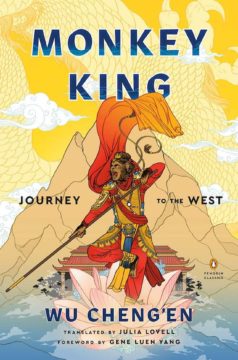 Third, Monkey King accentuates one of the major appeals of the novel — its humor — with embellishments made by the translator in three main ways: dialogue, the culture of the immortal society, and the technicality of magic. Monkey is nothing without his complete disregard for formality, even (or especially) as he interacts with those perching at the top of the deities’ hierarchical system. He evokes both childish innocence and rebellious boldness. The English edition takes this characteristic and runs with it, tweaking a word choice here and perfecting a repartee there, in line with the lighthearted tone of the original. I should mention also that Lovell excels at spicing up the insults exchanged between Monkey and his enemies. One of the spirits sent to subdue Monkey threatens his monkey kingdom, “The merest whisper of resistance and we’ll turn the lot of you into baboon butter” — you will not find “baboon butter” in the original version.
Third, Monkey King accentuates one of the major appeals of the novel — its humor — with embellishments made by the translator in three main ways: dialogue, the culture of the immortal society, and the technicality of magic. Monkey is nothing without his complete disregard for formality, even (or especially) as he interacts with those perching at the top of the deities’ hierarchical system. He evokes both childish innocence and rebellious boldness. The English edition takes this characteristic and runs with it, tweaking a word choice here and perfecting a repartee there, in line with the lighthearted tone of the original. I should mention also that Lovell excels at spicing up the insults exchanged between Monkey and his enemies. One of the spirits sent to subdue Monkey threatens his monkey kingdom, “The merest whisper of resistance and we’ll turn the lot of you into baboon butter” — you will not find “baboon butter” in the original version. Let’s talk about fear, health and why so many of us have decided that sitting in front of the
Let’s talk about fear, health and why so many of us have decided that sitting in front of the  For the chance to escape severe debt, the characters in Netflix’s hugely popular survival drama Squid Game would risk anything, even death. Take the protagonist Seong Gi-hun. Unemployed, he spends his days in Seoul gambling on horse races and has signed away his organs as collateral to his creditors. His deficits, both financial and personal, hurt the people closest to him: He hasn’t paid child support or alimony to his ex-wife; he mooches off his elderly mother. On his daughter’s birthday, Gi-hun can afford to buy her only tteokbokki (spicy rice cakes) and a claw-machine toy. He has little left to lose.
For the chance to escape severe debt, the characters in Netflix’s hugely popular survival drama Squid Game would risk anything, even death. Take the protagonist Seong Gi-hun. Unemployed, he spends his days in Seoul gambling on horse races and has signed away his organs as collateral to his creditors. His deficits, both financial and personal, hurt the people closest to him: He hasn’t paid child support or alimony to his ex-wife; he mooches off his elderly mother. On his daughter’s birthday, Gi-hun can afford to buy her only tteokbokki (spicy rice cakes) and a claw-machine toy. He has little left to lose. What do we think we know about Baruch Spinoza? We know he was one of the greatest philosophers of the Enlightenment: the Dutch thinker was a champion of free intellectual inquiry who broke new ground in metaphysics, epistemology and philosophy of mind. His magnum opus, the Ethics, put forward a system of breathtaking originality that is still celebrated today. We might know that he was a pioneer of the rationalist school that emerged in the 17th century. But more than any of this, most of us know something about his philosophy of religion: Spinoza’s writing is famously atheistic.
What do we think we know about Baruch Spinoza? We know he was one of the greatest philosophers of the Enlightenment: the Dutch thinker was a champion of free intellectual inquiry who broke new ground in metaphysics, epistemology and philosophy of mind. His magnum opus, the Ethics, put forward a system of breathtaking originality that is still celebrated today. We might know that he was a pioneer of the rationalist school that emerged in the 17th century. But more than any of this, most of us know something about his philosophy of religion: Spinoza’s writing is famously atheistic. Einstein recalled how, at the age of 16, he imagined chasing after a beam of light and that the thought experiment had played a memorable role in his development of special relativity. Famous as it is, it has proven difficult to understand just how the thought experiment delivers its results. It fails to generate serious problems for an ether based electrodynamics.
Einstein recalled how, at the age of 16, he imagined chasing after a beam of light and that the thought experiment had played a memorable role in his development of special relativity. Famous as it is, it has proven difficult to understand just how the thought experiment delivers its results. It fails to generate serious problems for an ether based electrodynamics.